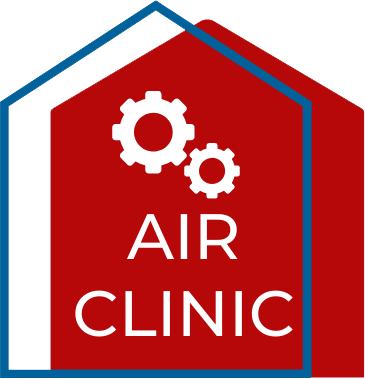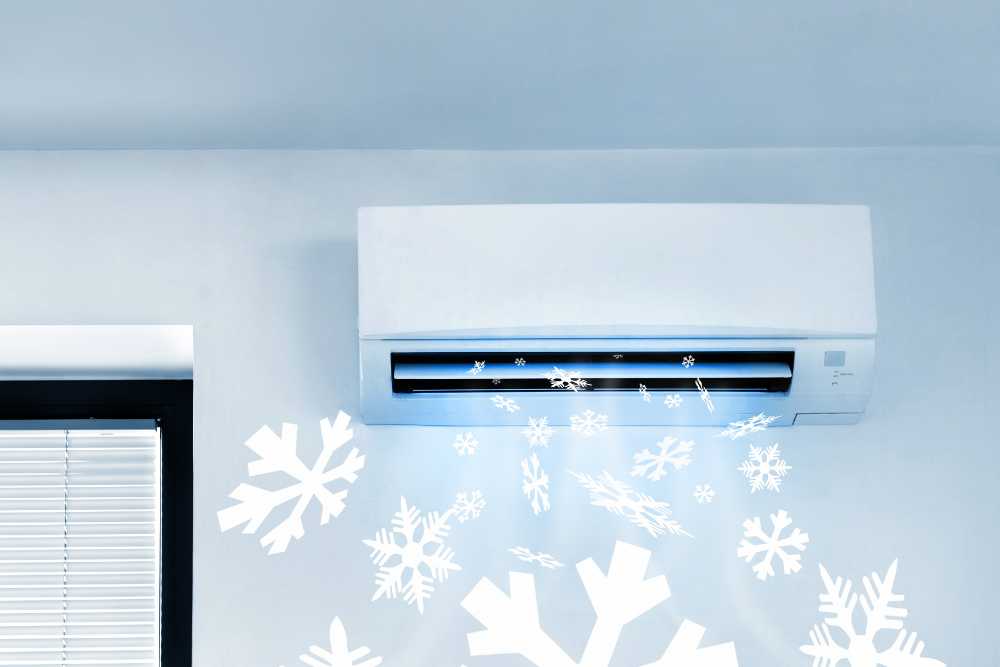Air conditioners allow you to comfortably endure the heat, avoid heatstroke and other health risks. However, many fear that the split system itself can provoke illnesses.
We’ll tell you whether an air conditioner is really harmful to health, break down the most common concerns people have. We’ll explain how to cool the air in an apartment without harming the body.
Here’s a breakdown of the information in more detail:
Air Conditioner Health Hazards: Myths and Truths
A split system makes life more comfortable. On summer days, you don’t have to suffer from debilitating heat and high humidity at home. In some apartments, the sun strongly heats the walls, and then they give off heat to the rooms all day. As a result, the temperature becomes not just uncomfortable, but even creates risks of heatstroke. However, many people are still afraid to install an air conditioner. They fear that it will bring more harm than good. Let’s consider whether these fears have any basis.
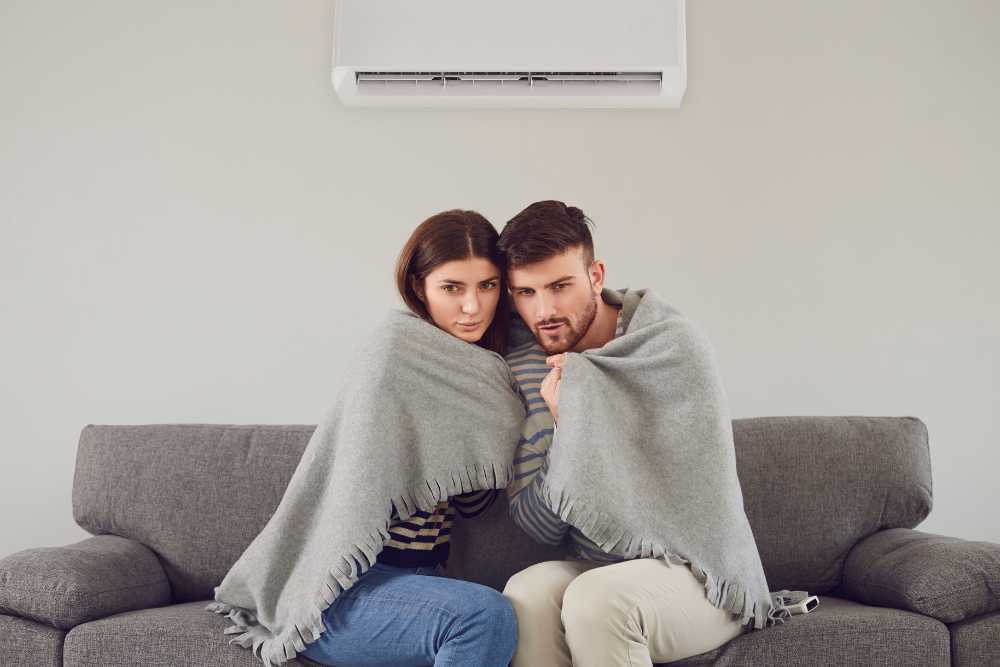
Colds and Flu
Contrary to popular belief, the operation of an air conditioner does not lead to the development of colds in humans.You can only catch the flu, coronavirus, and other ARVIs by inhaling or ingesting their viruses. Thus, infection is possible only if a sick person is in the room with you.
On the other hand, if the air conditioner is set to too low a temperature or the airflow is directed straight at a person, there is a risk of hypothermia. Hypothermia reduces immunity, making it easier for infections to enter the body and cause disease. It turns out that the air conditioner itself does not cause disease. It can only create favorable conditions for infection, if a person is in contact with an infected person.
Air conditioners do not cause colds; this is a myth. However, improper placement of the air conditioner and setting too low a temperature can lead to hypothermia, which will lead to weakening of the immune system.
To avoid the risk of hypothermia, it is important to choose the optimal location for the air conditioner and use it correctly. The flow of cooled air from the air conditioner should not directly hit areas where people are constantly present.
To prevent hypothermia, doctors recommend setting the air conditioner to a not-too-low temperature: no lower than 22–23 °C. It is also important to avoid a large temperature difference between the street and the house. The apartment should not be colder than the street by more than 8 °C. For example, if it is 32 °C outside, then you can set the air conditioner to 24 °C.
It is better to choose inverter air conditioners. They maintain the set temperature more accurately. Such split systems cool the room to the desired temperature and then constantly maintain it with reduced power. This avoids temperature fluctuations and the risk of hypothermia.
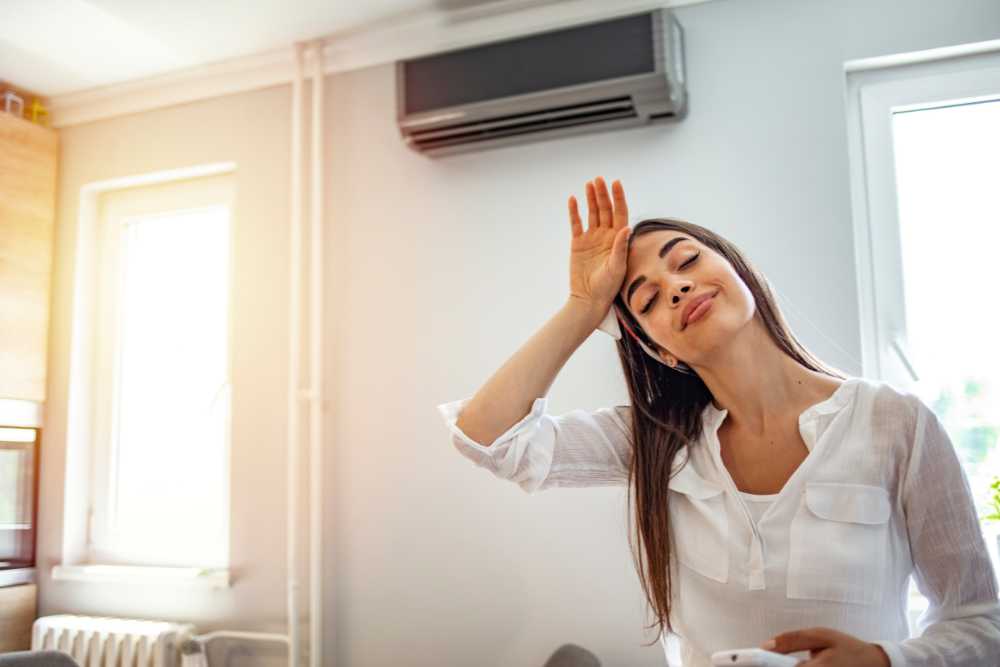
Efficiency of maintaining temperature using an inverter and non-inverter air conditioner
In comparison, traditional models operate at full power, and when the temperature gets higher, they switch off, and so on in cycles. Because of this, at times the room may be too cold or too hot, while the air blown out is colder than what inverter air conditioners deliver.
It is good if the split system is equipped with the I Feel function. The remote controls of such air conditioners are equipped with temperature sensors that allow the devices to measure the temperature not near the indoor unit, where it will be colder by definition, but near people – where the remote control is located. This allows you to maintain accurately the desired temperature exactly where you are.
Inflammation of Muscles and Nerve Endings
If cold air from an air conditioner blows directly onto the neck, back, or chest, a person can get “chilled” — myositis will occur. This happens due to muscle spasms, which provoke inflammation. As a result, pain appears, restricting movement.
And if air is supplied directly to the face for a long time, facial nerve neuritis can develop — inflammation of the nerves that control facial muscle movements.
In cooling mode, air should direct upwards, along the ceiling
You can avoid all these unpleasant things if the air conditioner is in the proper place: so that a direct stream of cold air does not hit a person. It is important that cold air blow into a free zone along the ceiling, where it mixes with warm air and thus delicate air-cooling occurs.
With improper use of an air conditioner, a person can indeed be “chilled.” However, this is easy to avoid if you do not stay under a direct stream of cooled air.
In premium series of air conditioners, you can manage the direction of airflow without any manual control at all. They can have a sensor that detects people and redirects cold air away from them.
Dry skin, eye discomfort
Air conditioning removes moisture, which drains through a hose. As a result, the relative humidity in the room decreases, and this can indeed cause dry skin and a feeling of sand in the eyes. However, this happens if the humidity drops below the level that is comfortable for a person – 30-60%.

Multiplication of Pathogenic Bacteria
There is a widespread theory that the bacteria Legionella, the causative agent of pneumonia, can multiply in air conditioners.
A warm and humid environment is suitable for its reproduction. However, science knows of only a few such cases, and they all relate to central air conditioning systems. Condensate stays and mixes with the air in them, while split systems drain it out immediately.
A small amount of moisture can accumulate on the filters, so during periods of active use of the air conditioner it is important to wash them once every 2–3 weeks, even if the split system is equipped with a self-cleaning function.
Modern air conditioners are reliably protected from the spread of viruses and bacteria inside their housing. It is important to wash the filters in time, use the self-cleaning function of the evaporator and service the air conditioner annually.
Headache
If you use an air conditioner for a long time with the windows closed, you may experience headaches and weakness. However, this is not about the operation of the split system . It is a consequence of insufficient room ventilation. Many people think that the air conditioner supplies air from the street, but this is not the case. Ordinary split systems only take warm air from the room and return the same air, but already cooled.
Without fresh air, indoor CO2 levels rise, causing headaches, drowsiness, and poor focus.
Using an air conditioner does not cause headaches, but they may appear due to insufficient ventilation.
You cannot refuse to ventilate, even though the room quickly becomes hot with open windows.
Some air conditioner models allow you to refresh and cool the air simultaneously. They are additionally equipped with a fresh air supply function.
Conclusions: How to Avoid Health Hazards from an Air Conditioner
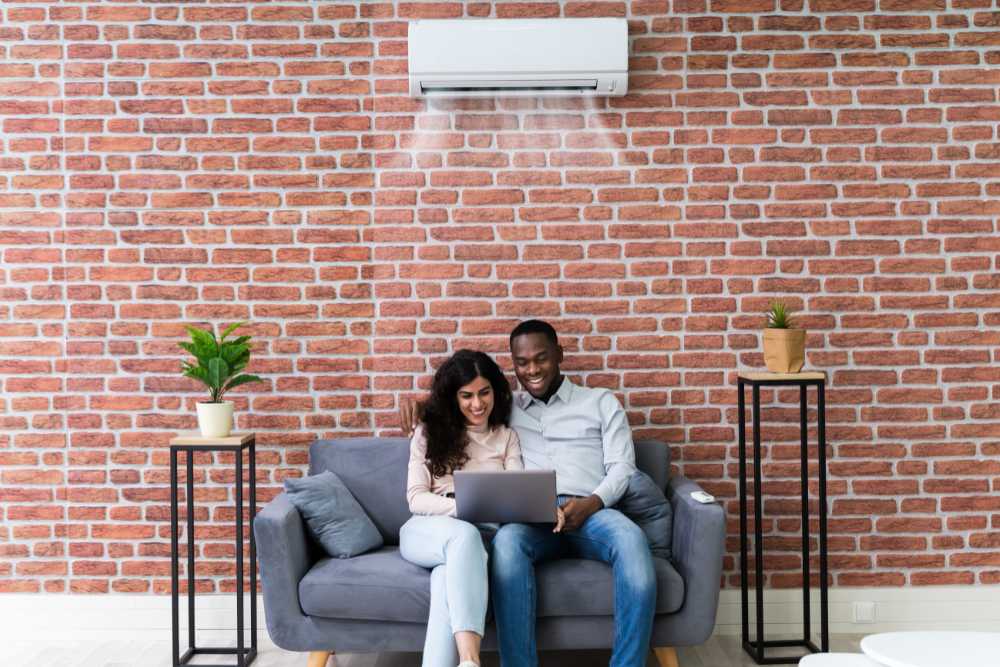
Air conditioners do not harm human health if used properly. Moreover, modern split systems can minimize all possible risks. To protect yourself, follow these rules when using an air conditioner:
-
Position the indoor unit of the air conditioner so that the direct flow of blown air does not hit areas where people are constantly present.
-
Set the air conditioner to a temperature not higher than 22–23 °C. At the same time, the difference between the temperature in the apartment and outside should not be more than 8 °C.
-
Clean the mesh filters of the air conditioner at least every 2–3 weeks. This will protect against exacerbation of dust allergies, as well as against the growth of bacteria on the filters.
-
Maintain the cleanliness of both units of the split system and prevent refrigerant leakage. Carry out annual maintenance of the air conditioner.
-
Prevent a sharp decrease in air humidity and an increase in carbon dioxide concentration in it. Periodically ventilate the room. And so that cooling occurs simultaneously with its renewal. You can choose an air conditioner with an air supply or additionally use a breather.
And if you are now in the process of choosing an air conditioner, then the following tips will help you:
- To ensure that the temperature in the apartment is maintained without fluctuations and as accurately as possible, choose inverter models with the I Feel function.
- To make it easier to adjust the direction of airflow horizontally and vertically, choose models with automatic blinds. They are adjusted from the remote control. It is good if the air conditioner has a function of remembering the last settings of the blinds.
- If there are several zones of constant location of people in the room or people move frequently, you can choose an air conditioner with a presence sensor. The sensor will help the air conditioner constantly divert the flow of cold air from people, which will protect against hypothermia.
- To prevent the growth of bacteria and viruses inside the indoor unit, choose models with self-cleaning evaporator.
